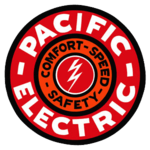Long Beach (Pacific Electric)
| Long Beach | ||||||||||||||||||||||||||||||||||||||||||||||||||||||||||||||||||||||||||||||||||||||||||||||||||||||||||||||||||||||||||||||||||||||||||||||||||||||||||||||||||
|---|---|---|---|---|---|---|---|---|---|---|---|---|---|---|---|---|---|---|---|---|---|---|---|---|---|---|---|---|---|---|---|---|---|---|---|---|---|---|---|---|---|---|---|---|---|---|---|---|---|---|---|---|---|---|---|---|---|---|---|---|---|---|---|---|---|---|---|---|---|---|---|---|---|---|---|---|---|---|---|---|---|---|---|---|---|---|---|---|---|---|---|---|---|---|---|---|---|---|---|---|---|---|---|---|---|---|---|---|---|---|---|---|---|---|---|---|---|---|---|---|---|---|---|---|---|---|---|---|---|---|---|---|---|---|---|---|---|---|---|---|---|---|---|---|---|---|---|---|---|---|---|---|---|---|---|---|---|---|---|---|---|---|
| Overview | ||||||||||||||||||||||||||||||||||||||||||||||||||||||||||||||||||||||||||||||||||||||||||||||||||||||||||||||||||||||||||||||||||||||||||||||||||||||||||||||||||
| Type | Interurban rail | |||||||||||||||||||||||||||||||||||||||||||||||||||||||||||||||||||||||||||||||||||||||||||||||||||||||||||||||||||||||||||||||||||||||||||||||||||||||||||||||||
| System | Pacific Electric Railway | |||||||||||||||||||||||||||||||||||||||||||||||||||||||||||||||||||||||||||||||||||||||||||||||||||||||||||||||||||||||||||||||||||||||||||||||||||||||||||||||||
| Locale | Los Angeles, and Long Beach | |||||||||||||||||||||||||||||||||||||||||||||||||||||||||||||||||||||||||||||||||||||||||||||||||||||||||||||||||||||||||||||||||||||||||||||||||||||||||||||||||
| Termini |
Downtown Los Angeles Downtown Long Beach, California | |||||||||||||||||||||||||||||||||||||||||||||||||||||||||||||||||||||||||||||||||||||||||||||||||||||||||||||||||||||||||||||||||||||||||||||||||||||||||||||||||
| Stations | 8 | |||||||||||||||||||||||||||||||||||||||||||||||||||||||||||||||||||||||||||||||||||||||||||||||||||||||||||||||||||||||||||||||||||||||||||||||||||||||||||||||||
| Daily ridership | 1,603,476 (last count) | |||||||||||||||||||||||||||||||||||||||||||||||||||||||||||||||||||||||||||||||||||||||||||||||||||||||||||||||||||||||||||||||||||||||||||||||||||||||||||||||||
| Operation | ||||||||||||||||||||||||||||||||||||||||||||||||||||||||||||||||||||||||||||||||||||||||||||||||||||||||||||||||||||||||||||||||||||||||||||||||||||||||||||||||||
| Opening | 1902 | |||||||||||||||||||||||||||||||||||||||||||||||||||||||||||||||||||||||||||||||||||||||||||||||||||||||||||||||||||||||||||||||||||||||||||||||||||||||||||||||||
| Closed | 1961 | |||||||||||||||||||||||||||||||||||||||||||||||||||||||||||||||||||||||||||||||||||||||||||||||||||||||||||||||||||||||||||||||||||||||||||||||||||||||||||||||||
| Operator(s) | Pacific Electric Railway | |||||||||||||||||||||||||||||||||||||||||||||||||||||||||||||||||||||||||||||||||||||||||||||||||||||||||||||||||||||||||||||||||||||||||||||||||||||||||||||||||
| Rolling stock | PE 1200 Class (last used) | |||||||||||||||||||||||||||||||||||||||||||||||||||||||||||||||||||||||||||||||||||||||||||||||||||||||||||||||||||||||||||||||||||||||||||||||||||||||||||||||||
| Technical | ||||||||||||||||||||||||||||||||||||||||||||||||||||||||||||||||||||||||||||||||||||||||||||||||||||||||||||||||||||||||||||||||||||||||||||||||||||||||||||||||||
| Line length | 20.37 miles | |||||||||||||||||||||||||||||||||||||||||||||||||||||||||||||||||||||||||||||||||||||||||||||||||||||||||||||||||||||||||||||||||||||||||||||||||||||||||||||||||
| Track gauge | 1,435 mm (4 ft 8 1⁄2 in) standard gauge | |||||||||||||||||||||||||||||||||||||||||||||||||||||||||||||||||||||||||||||||||||||||||||||||||||||||||||||||||||||||||||||||||||||||||||||||||||||||||||||||||
| Electrification | Overhead lines | |||||||||||||||||||||||||||||||||||||||||||||||||||||||||||||||||||||||||||||||||||||||||||||||||||||||||||||||||||||||||||||||||||||||||||||||||||||||||||||||||
| ||||||||||||||||||||||||||||||||||||||||||||||||||||||||||||||||||||||||||||||||||||||||||||||||||||||||||||||||||||||||||||||||||||||||||||||||||||||||||||||||||
The Long Beach Line was a major interurban railway operated by the Pacific Electric Railway between Los Angeles and Long Beach, California via Florence, Watts, and Compton. Service began in 1902 and lasted until 1961, the last line of the system to be replaced by buses. However, the Southern Pacific Transportation Company continued to operate freight on the tracks, as the Union Pacific Railroad still does north of Dominguez Junction, and in 1990 the Southern California Rapid Transit District opened the Blue Line light rail along the same right-of-way.
In addition to the Long Beach service, the line served as a trunk for a number of other interurban lines stretching to Whittier, Yorba Linda, Fullerton, Santa Ana, Balboa, San Pedro, and Redondo Beach. It was four tracks wide north of the junction at Watts, with local service on the outer tracks and long-distance trains bypassing the local stations on the inner tracks.
Operations
Trains left the Pacific Electric Building on an elevated structure that extended east to San Pedro Street south of 6th Street. They turned south on San Pedro, then east on 9th Street to Hooper Avenue, where private right-of-way began, initially paralleling Long Beach Avenue to the west (the current Blue Line enters this right-of-way at Washington Boulevard). The line re-entered the public streets in Long Beach, where it followed Long Beach Boulevard south and Ocean Boulevard west to the Morgan Avenue Yard (Morgan Avenue was approximately in the center of the Los Angeles River Flood Control Channel). Private right-of-way continued across Long Beach Boulevard all the way to Balboa.
For a number of years, the PE operated express "flyer" service along the Long Beach route. The flyer service only made a few stops between Downtown Los Angeles and Long Beach, as compared with regular service that made all stops between Watts and Willowville, and most stops between Willowville and Long Beach. The right-of-way was also served by a pair of local lines, the Watts Line between Downtown Los Angeles and Watts, and the American Avenue-North Long Beach Line between Willowville and Long Beach.
History
Henry E. Huntington incorporated the Pacific Electric Railway in November 1901 and immediately began work on the Long Beach Line. Service began on July 4, 1902, initially beginning at 9th and Main Streets in downtown Los Angeles (the trackage on 9th Street was acquired from Huntington's Los Angeles Railway in 1904). The terminal was moved to the Pacific Electric Building in 1905, and trains were rerouted over the newly-built elevated trackage west of San Pedro Street in 1917.[1]
Train service ended in April 1961, replaced by the 36 "Long Beach Freeway Flyer" bus, which followed the new Long Beach Freeway north of the Long Beach Boulevard interchange. Local replacement service north of this point was provided by the 33 "Los Angeles-Compton-Wilmington",[2] which had replaced San Pedro via Dominguez Line trains in 1958. There is no longer an express bus to Long Beach, but the Blue Line light rail, opened in 1990, serves the same purpose.
Station list
| City | Station | Opened | Closed | Notes |
|---|---|---|---|---|
| Los Angeles | Pacific Electric Building | 1905 | 1961 | |
| Amoco | 1902 | 1961 | Junction with Santa Monica Air Line | |
| Vernon Avenue | ||||
| Slauson Avenue | ||||
| Slauson Junction | 1902 | 1961 | Junction with Whittier Line (to Yorba Linda and Fullerton) | |
| Fleming | ||||
| Florencito Park | ||||
| Florence Avenue | ||||
| Nadeau | ||||
| Graham | ||||
| Los Angeles | Latin | |||
| Watts | 1902 | 1961 | Junction with Santa Ana Line and Redondo via Gardena Line | |
| Abila | ||||
| Springdale | ||||
| Willowbrook | ||||
| Sativa | ||||
| Compton | Winona | |||
| Compton | 1902 | 1961 | ||
| Dominguez | ||||
| Dominguez Junction | 1902 | 1961 | Junction with San Pedro via Dominguez Line | |
| Carson | Del Amo | |||
| Long Beach | Cota | |||
| Los Cerritos | ||||
| Vista del Mar | ||||
| Willowville | 1902 | 1961 | Junction with Newport-Balboa Line | |
| Morgan Avenue | 1902 | 1961 |
References
- ↑ Electric Railway Historical Association of Southern California, Pacific Electric Los Angeles Terminal District, accessed December 2014
- ↑ Southern California Rapid Transit District, A Guide for Going Places, June 1970 (side 1, side 2)
- Electric Railway Historical Association of Southern California, Pacific Electric Long Beach Line, accessed December 2014
| ||||||||||||||||||||||||||||||||||||
